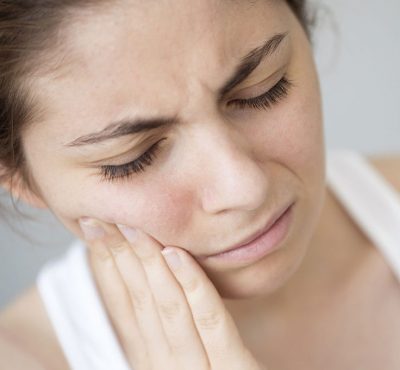
Jaw pain can affect people of all ages. The jaw joints and muscles surrounding them are some of the most powerful and frequently used parts of our bodies, and the pain and tension can affect not just the jaw but other areas of the face, head and neck.
Symptoms
There is a wide range of symptoms associated with jaw pain, including:
- Tightness, tension or pressure in the jaw area
- Pain ranging from a constant dull ache through to sharp, stabbing pain
- Tension or pain spreading to other areas of the face
- Headaches and neck ache
- Tenderness at the jaw joint, facial pain and difficulty moving the joint
- Clicking or popping sounds from the jaw
- Locking of the jaw
Symptoms can be on just one side of the face or on both sides. They may be present all the time or occur when you chew, talk or open your mouth wide.
Causes of Jaw Pain
One of the most common causes of jaw pain is temporomandibular joint (TMJ) disorder, which refers to problems with the joint that connects your lower jaw to your skull. It is not always clear what causes TMJ disorder, but jaw trauma, arthritis, and joint erosion as well as grinding or clenching your teeth can all be contributing factors. Poor posture, stress and an inadequate diet are also associated with the condition.
Other causes include toothache, periodontal disease, injury or trauma such as from a sports injury or accident, hormonal changes and genetic factors.
Treatment For Jaw Pain
Jaw pain can be temporarily relieved by applying hot or cold packs to the face or taking over-the-counter painkillers. However, it is recommended that you consult with your dentist for a diagnosis because if left untreated your symptoms could worsen and lead to more serious issues developing. Assessment by your dentist is likely to include diagnostic x-rays to see what is going on below the gumline.
TMJ treatment and relieving jaw pain may involve a combination of options, such as:
- A custom-made nightguard to wear at night to prevent teeth grinding and clenching while you sleep.
- Botox injections into the jaw muscles to help prevent your muscles from clenching (without affecting your ability to chew).
- Physical therapy exercises to practice relaxing your jaw, or jaw-stretching exercises which can help relieve tension and improve movement.
- Surgery may also be an option for severe cases, where the joint can be replaced.
Please contact us for an assessment if you need help in relieving jaw pain.